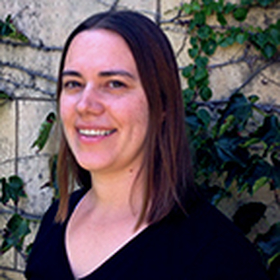

1475 Gortner Avenue
St. Paul, MN 55108
United States
Vanessa
Pompei
Research statement
I am very interested in the ways that non-science-majors understand the nature of science, and how they interpret scientific findings. I am also interested in finding the best practices for having students (particularly non-majors) work directly with the primary literature. While working on the laboratory portion of our foundations of biology course for majors, I have become deeply interested in how we teach biology majors to write science papers in an authentic way.
Teaching statement
I strive to have my students interact directly with the primary literature as much as possible. One of my goals for both biology majors and non-majors is to have them understand the current research on a particular topic, as well as the underlying process of science that produced the papers they are reading. I push students to think about the assumptions, limitations, and potential errors in every paper they read, so that they can think critically about things in the literature and in popular media. I have recently altered the writing curriculum in the laboratory portion of our foundations course for majors so that the primary literature also plays a prominent role there. Students analyze published papers in detail as they think about the format of the papers, the assumptions that underlie the way we write in this discipline, and the choices that authors make while writing about their research.
Education and background
Degrees earned
- M.S. Conservation Biology, University of Minnesota, Twin Cities, 2004: Migration stopover sites used by Great Lakes Piping Plovers (Charadrius melodus), Francesca Cuthbert, adviser
- B.S. Zoology (highest honors), University of California, Santa Barbara, 2000
Favorite teaching innovation or approach
Discussion Questions (before class): In my freshman seminar, I have students write discussion questions for each reading assignment, along with their reflections on the readings. The reaction from students to this seemingly simple assignment has been surprising. Students have told me that they never would have planned out the things that they wanted to contribute to the group discussion ahead of time. Students who find it difficult to participate in group discussions have said that they were much more comfortable participating, and were surprised by how significant their contributions to the conversations sometimes were! The discussion question assignment makes it clear that they can include things they found challenging about the reading. It seems that students find this very freeing, and it has lead to many interesting discussions about how to read scientific journal articles, writing for different audiences, and the nuts and bolts of whatever science concepts are on the table that day.
Courses taught
- Biol 1050 – Environmental Biology: Science and Solutions
- Biol 1905 – Freshman Seminar, Get to Know Your Cup of Joe
- Biol 2012 – General Zoology
- Biol 2002 – Foundations of Biology I, laboratory
Recent presentations, invited seminars and workshops
Presenter at various Conversations on Teaching and Learning seminars, Biology Program, University of Minnesota, Twin Cities, 2008-present.
Professional experience
University of Minnesota, College of Biological Sciences
- Associate Education Specialist (as of 2014)
- Assistant Education Specialist (2007 – 2014)
University of Minnesota, College of Education and Human Development
- Laboratory Services Coordinator & Instructor (2006-2007)
University of Minnesota, General College
- Laboratory Services Coordinator & Instructor (2005-2006)